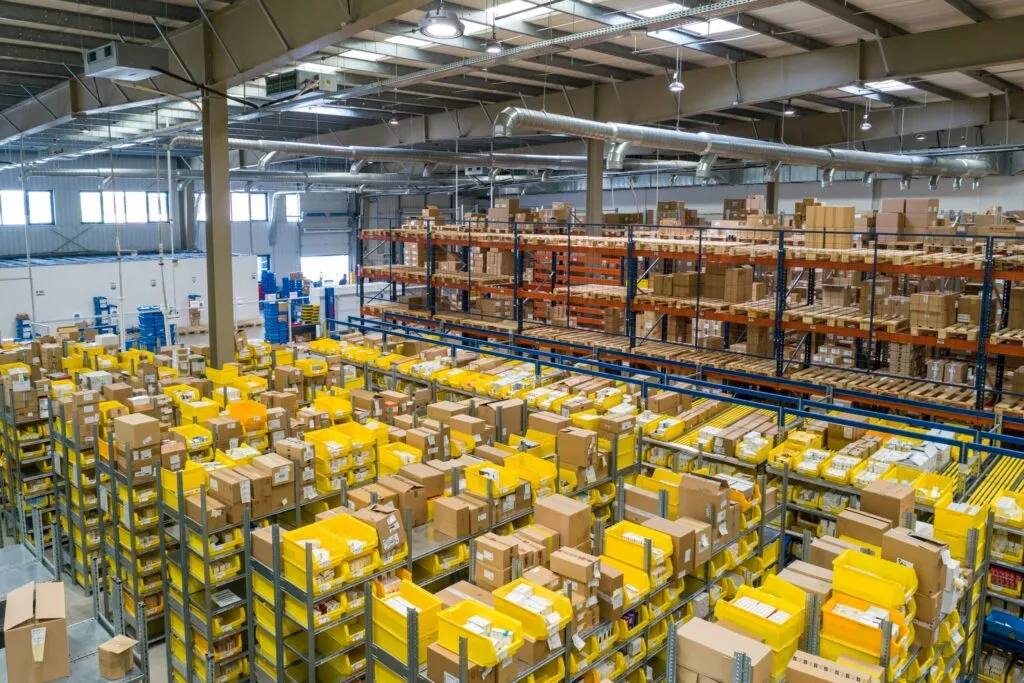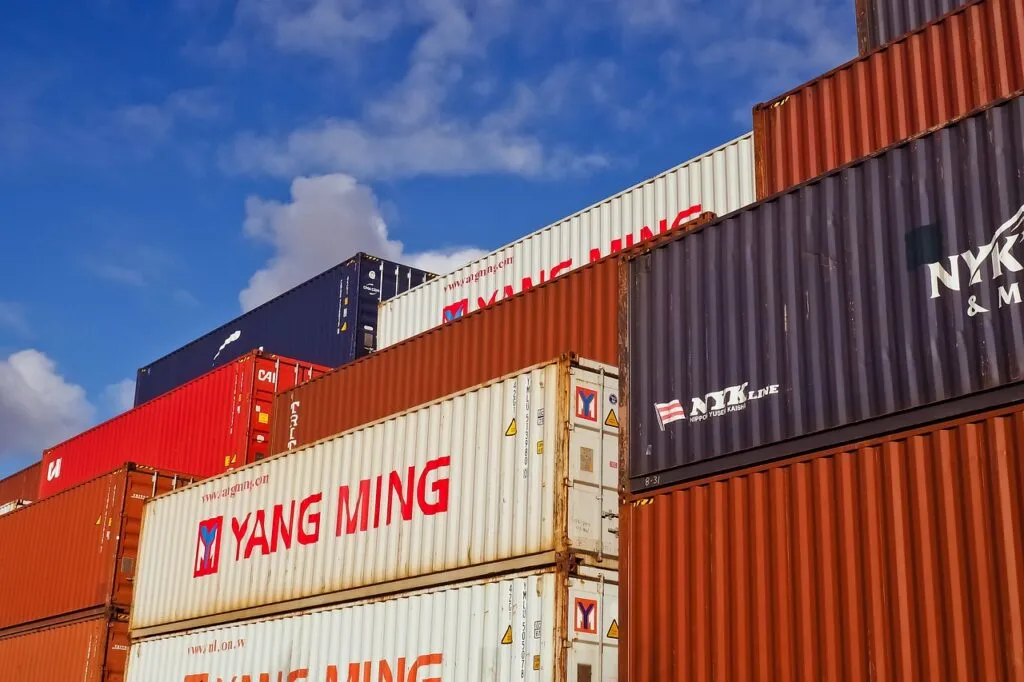Optimizing Supply Chain: How to Boost Your Logistics and Team

An effective supply chain can distinguish between success and stagnation in the fast-paced business world. In today’s competitive environment, supply chain optimization is more than just a catchphrase – it’s a strategic requirement. We’ll dive into the nuances of supply chain management in this blog post, looking at creative approaches to improve your team’s productivity and logistics. Come along on this journey to learn how to optimize your supply chain and revolutionize your business, regardless of your experience level.
New Challenges Ahead
We find ourselves amidst unprecedented change, where shifting consumer behaviors demand swift and adaptable responses, thrusting industries into an ongoing battle to optimize their supply chains.
In this transformative landscape, every organization and professional grapples with unique challenges, including:
- Productivity concerns
- Escalating cost structures stemming from supplies, spare parts, and human resources
- Unforeseen fluctuations in demand
- Ensuring business continuity amidst risks
- Navigating disruptions in their suppliers’ supply chains
All of these challenges unfold against the backdrop of major logistics crises – port closures and flight cancellations due to new COVID-19 outbreaks, coupled with a global shortage of containers.
Amidst this complexity, reevaluating the fundamental structure of your supply chain might be the pivotal detail that propels it toward optimal development, thereby fueling the growth of your business.
Sculpting the Main Elements of the Supply Chain
Within the complex web of contemporary business, creating an effective supply chain is like creating a work of art. Similar to how a sculptor painstakingly forms each curve and contour, companies need to carefully hone the essential components of their supply chain to guarantee smooth operations. Every element of this complex design, from suppliers to logistics, plays a crucial part in determining the effectiveness, affordability, and customer satisfaction of the entire undertaking. We explore the fundamentals of supply chain management in this investigation: suppliers, production lines, distribution, returned items, and logistics. We aim to elucidate the subtleties involved in maximizing each aspect and crafting a robust supply chain masterpiece.
Suppliers
Suppliers are essential to any supply chain because they provide the resources and raw materials needed for manufacturing. Building solid connections, exercising caution in supplier selection, and guaranteeing a steady supply of superior products are all necessary to create a trustworthy network of suppliers. Lead times are reduced, procurement procedures are streamlined, and overall production efficiency is increased through effective communication and cooperation with suppliers.
Production Line
The manufacturing process centers around the production line, where raw materials are transformed into final goods. Careful planning, automation integration, and strict quality control procedures are necessary for optimizing this phase. Increasing productivity and lowering operating costs can be achieved by adjusting production schedules in response to demand estimates, using lean manufacturing principles, and embracing technologies like IoT and AI for predictive maintenance.
Distribution
The manufacturing process centers around the production line, which is where raw materials are transformed into the end product. Careful planning, automation integration, and strict quality control procedures are necessary for optimizing this phase. Increasing productivity and lowering operating costs can be achieved by adjusting production schedules in response to demand estimates, using lean manufacturing principles, and embracing technologies like IoT and AI for predictive maintenance.

Returned Items
Distribution channels, which include transportation, inventory control, and warehousing, serve as a link between producers and consumers. Streamlined processes are made possible by effective warehousing techniques, such as well-organized storage systems and real-time inventory tracking. In order to maximize customer satisfaction and minimize transit times and costs, timely deliveries are ensured through the use of strategic distribution network design, route optimization, and agile transportation solutions.
Logistics
The complex network that coordinates information sharing, inventory control, and transportation is known as logistics, and it drives the whole supply chain. Route optimization software, inventory visibility tools, and real-time tracking enable businesses to react quickly to shifting consumer demands. The agility and robustness of logistics operations are improved by implementing data-driven decision-making, adopting sustainable practices, and guaranteeing collaboration amongst all supply chain parts. It enables firms to respond to dynamic market situations successfully.

Optimizing Logistics
A complex strategy is used to optimize logistics with the goals of cutting expenses, increasing total supply chain performance, and optimizing efficiency. In order to accurately forecast demand, it starts with a thorough data analysis that makes use of technologies like machine learning and predictive analytics. Efficient inventory management techniques, like safety stock optimization and just-in-time inventory, assist in reducing storage costs while guaranteeing that supplies are available when needed. Using GPS and RFID technologies, route optimization and real-time tracking expedite transportation, reducing transit times and fuel usage. Using robotics and automation in warehouses boosts productivity, decreases errors, and expedites order processing.
Furthermore, promoting cooperation and communication between suppliers, manufacturers, and distributors, as well as other supply chain participants, guarantees smooth coordination and prompt reactions to changes in the market. In order to be competitive in the market and quickly adjust to changing needs, firms must regularly evaluate employee performance and adopt a continuous improvement approach.
Optimizing Team
A well-planned combination of encouraging cooperation, empowering individuals, and cultivating a positive work environment is necessary to maximize a team. To improve productivity and job satisfaction, it is crucial first to identify and utilize each team member’s distinct strengths and abilities. This will allow jobs to be assigned in a way that best suits their competence areas. A shared vision is created by open lines of communication and honest goal-setting, which guarantees that everyone on the team is aware of their specific duties. Encouraging ongoing learning via initiatives for skill development and training programs keeps the staff abreast of industry developments and improves their capabilities.
Additionally, encouraging a welcoming, inclusive atmosphere where suggestions are appreciated and helpful criticism is accepted promotes innovation and creativity.
Acknowledging and valuing accomplishments of all sizes raises spirits and inspires people. Furthermore, providing advice, mentorship, and opportunities for professional development by competent leadership is essential for maximizing team performance and guaranteeing a cohesive and productive work unit.

Partnering With the Right Logistics Provider
Achieving smooth and effective supply chain management requires organizations to partner with the right logistics provider. The correct partner may drastically cut expenses, increase customer happiness, and improve operational efficiency. Carolina Logistics Inc. stands out as a reliable choice, offering exceptional supply chain management solutions tailored to meet diverse business needs. By collaborating with Carolina Logistics Inc., customers can benefit from their expertise in navigating complex logistics challenges, ensuring timely deliveries, optimizing inventory management, and providing real-time tracking solutions.
Carolina Logistics Inc. adds value to businesses by allowing them to concentrate on their core capabilities while also streamlining logistical procedures. We are dedicated to professionalism, dependability, and innovation. Selecting Carolina Logistics Inc. as your logistics partner ensures a seamless and optimized supply chain, enabling you to provide outstanding customer service and maintain your competitive edge in the market today.
